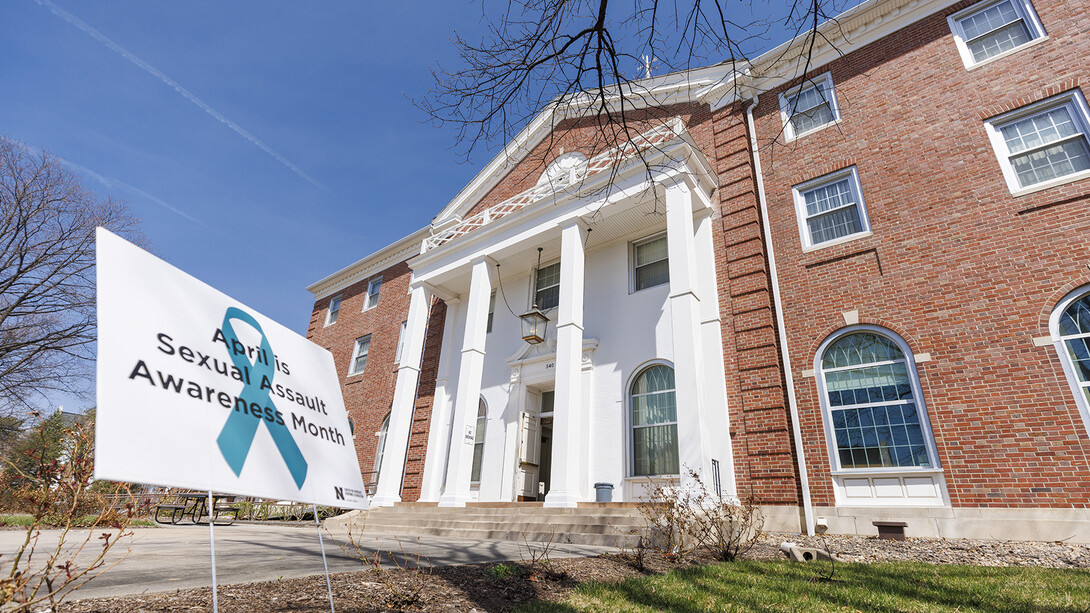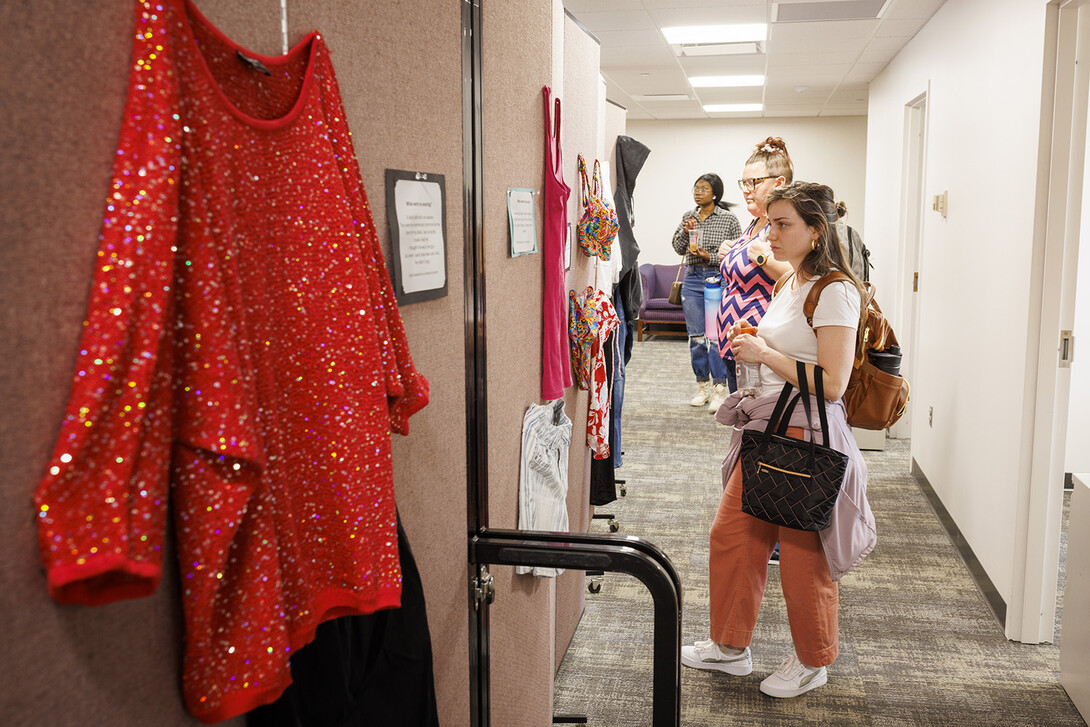
CARE is growing at the University of Nebraska–Lincoln.
In summer 2022, the university’s Center for Advocacy, Response and Education — a hub that supports Huskers who have experienced sexual assault, domestic/dating violence, stalking, harassment and other crimes — will open in a larger, newly-renovated space within Neihardt Center.
The space will offer expanded capabilities for the CARE team. It includes six private individual offices, a large gathering space/lounge, and onsite access to other spaces, including a classroom for working with large student groups. During the week of April 11, CARE hosted a “What Were You Wearing?” survivor art installation in Neihardt, offering the campus community a preview of the unfinished office.
“There is so much opportunity in this new space,” said Melissa Wilkerson, a victim advocate with CARE. “It gives us the room we need to grow in terms of staffing, improve how we assist those who come to us for assistance, and expand the scope of educational programming we offer to our student groups.
“It will help us better support the needs of our campus community.”
Batool Ibrahim, former president of the Association of Students of the University of Nebraska and a senior global studies and political science major, said progress on CARE’s new home is a welcome sign for the university community.
“We are excited to see the university leadership being dedicated to create as safe as an environment as is possible on a college campus,” Ibrahim said. “This needed expansion for CARE represents how important student safety is to the university. It’s also going to give the CARE advocates a space to do so many more things and make a positive impact on our campus community.”

Students, faculty and staff who visited during the art installation agreed with Ibrahim.
“There was genuine excitement when people realized they were standing in what will be the new CARE space,” Wilkerson said. “Hosting that event was a real win-win for us.
“This was an opportunity for everyone to familiarize themselves with the building and have a better understanding of what CARE will soon be.”
The university has also deepened in other areas its commitment to reducing sexual misconduct and expanding related supports to the campus community. Additional areas of recent progress include:
A search is ongoing to identify the first director for CARE. When hired, the new director will lead an effort to increase the number of CARE advocates, which are professionally trained employees (like Wilkerson) who support victims/survivors.
An ongoing examination on how to expand mental health supports on campus, including resources for Counseling and Psychological Services.
A syllabus statement on sexual misconduct was developed and approved through the Office of the Executive Vice Chancellor and Faculty Senate. It is available to all instructors for inclusion in syllabi.
Updates are being made to sexual misconduct training modules. The updates are addressing student concerns and are scheduled for implementation by fall 2022.
University leaders are developing stronger contacts with off-campus resources, including Voices of Hope.
A role to lead campuswide education on sexual misconduct is being pursued by Student Affairs.
These steps to increase support systems and awareness regarding sexual misconduct and related violent acts are a reflection of a growing need within higher education. Nationwide, 13% of all undergraduate and graduate students are impacted by sexual violence while pursuing a degree. That figure more than doubles to 26.4% when focused on undergraduate female students.
“This new CARE space and its expanded capacity is an opportunity to offer a holistic approach that will benefit our entire campus community,” Wilkerson said. “It’s exciting to see that vision come to fruition.”







